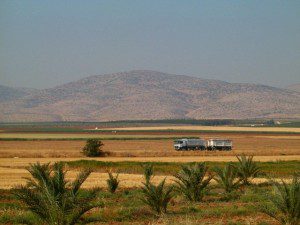
(Click to enlarge.)
Compare Matthew 5:3-13
The Beatitudes, as they’re given in Luke’s account of the Sermon on the Plain, vary somewhat from those given by Matthew in his account of the Sermon on the Mount.
For instance, they’re addressed to the Savior’s audience, in the second person plural, rather than spoken in the third person plural.
Luke 6:20 pronounces a blessing upon the “poor,” rather than specifying the “poor in spirit.” And it speaks of the “kingdom of God” rather than, as Matthew does, of the “kingdom of heaven” (or, more properly, the “kingdom of the heavens,” ἡ βασιλεία τῶν οὐρανῶν). And it’s opposed by Luke 6:24, which pronounces a “woe” to the rich.
“Those who mourn” and “the meek,” of Matthew 5:5-6, are missing. As are, while we’re at it, “the merciful,” “the pure in heart,” “the peacemakers,” and “those who are persecuted for righteousness’ sake” (i.e., Matthew 5:7-10).
Luke’s “blessed are you that hunger now” (6:21) varies from Matthew’s “hunger and thirst for righteousness” (Matthew 5:6). And it’s paired with Luke 6:25a (“Woe to you that are full now, for you shall hunger”).
The Lukan “Blessed are you that weep now, for you shall laugh” (6:21b) has no real counterpart in Matthew’s sermon, but, again, is contrasted with Luke 25b (“Woe to you that laugh now, for you shall mourn and weep”).
The same sort of contrast follows Luke 6:22-23, which is pretty much equivalent to Matthew 5:11-12 but which lacks the rejoinder given in Luke 6:26: “Woe to you, when all men speak well of you, for so their fathers did to the false prophets.”











